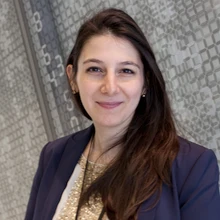
Azerbaijan Strengthens Trilateral Cooperation With Pakistan and Türkiye  By Vasif HUSEYNOV, PhD, Head of Department, AIR Center, Adjunct Lecturer, ADA and Khazar Universities, Baku By Vasif HUSEYNOV, PhD, Head of Department, AIR Center, Adjunct Lecturer, ADA and Khazar Universities, Baku
On July 11 and 12, Azerbaijani President Ilham Aliyev paid a state visit to Pakistan to bolster bilateral ties with Islamabad. The visit came less than two weeks after Aliyev’s meeting with Pakistani Prime Minister Muhammad Shehbaz Sharif and Turkish President Recep Tayyip Erdogan for their first-ever trilateral summit. The meeting took place on the sidelines of the Shanghai Cooperation Organization summit on July 3 in Astana and was a significant milestone in elevating their tripartite cooperation from parliamentary and ministerial levels to state leadership. Both Aliyev’s visit to Islamabad and the trilateral summit of Azerbaijan, Pakistan, and Türkiye highlight the three countries’ commitment to expanding their trilateral trade and transit cooperation, as well as better integrating their military capabilities and defence production.
READ MORE
- EGF Editor |
Published on EGF: 26.07.2024
| External Relations
-
What does Azerbaijan’s “shift to the East” mean for the South Caucasus?  By Yeghia TASHJIAN, Beirut-based regional analyst and researcher, columnist, "The Armenian Weekly” By Yeghia TASHJIAN, Beirut-based regional analyst and researcher, columnist, "The Armenian Weekly”
On August 29, 2023, in my article “What does the expansion of BRICS mean for the South Caucasus?” I argued that Iran’s accession to BRICS and the integration of the region’s infrastructure into the International North-South Transport Corridor (INSTC) would similarly increase pressure on Armenia and Azerbaijan to join the bloc. The post-2020 regional status quo and the war in Ukraine have opened the path for new Eurasian actors such as India and China to exert their influence on the South Caucasus. Azerbaijan is the main beneficiary of this development. Positioned strategically along the North-South and East-West transport corridors, Baku has capitalized on its position to become a pivotal transportation and logistics hub in Eurasia. This has caught the attention of China amid the geopolitical shifts that took place in the South Caucasus in light of the second Artsakh (Nagorno-Karabakh) and Ukraine wars.
READ MORE
- EGF Editor |
Published on EGF: 26.07.2024
| External Relations
-
What drives Azerbaijani obsession with the Armenian Constitution?  By Benyamin POGHOSYAN, PhD, Chairman, Center for Political and Economic Strategic Studies By Benyamin POGHOSYAN, PhD, Chairman, Center for Political and Economic Strategic Studies
Since the end of the Second Nagorno-Karabakh War in 2020, Armenia and Azerbaijan have been engaged in negotiations to sign a peace agreement. The process seems like a roller coaster of extreme ups and downs, reflecting the volatile and unpredictable nature of the discussions. Several times, the sides have seemed close to reaching a deal only for an unexpected circumstance to arise, causing a significant reversal during the peace talks. In late 2022, after intensive negotiations in Washington and Prague, Azerbaijan refused to appear in Brussels and instead launched a blockade of the self-proclaimed Nagorno-Karabakh Republic. Azerbaijan did the same at the end of 2023, when despite mounting hopes for an imminent agreement President Aliyev refused to attend the European Political Community (EPC) summit in October 2023 in Granada and the trilateral Armenia–Azerbaijan–European Union summit in Brussels.
READ MORE
- EGF Editor |
Published on EGF: 26.07.2024
| External Relations
-
What is behind the Azerbaijan–Pakistan love affair?  By Benyamin POGHOSYAN, PhD, Chairman, Center for Political and Economic Strategic Studies By Benyamin POGHOSYAN, PhD, Chairman, Center for Political and Economic Strategic Studies
Recently, Azerbaijan–Pakistan ties have grown significantly through economic and military-technical cooperation. Pakistan threw its full support behind Azerbaijan during the 2020 Nagorno-Karabakh war, supplying weapons and providing training for Azerbaijani special forces. When Azerbaijan claimed victory in November 2020, the streets of Baku were full of Pakistani flags. Relations grew closer still after 2020, with intensive negotiations to buy Pakistani-made military jets and supply Azerbaijani gas to Pakistan. They discussed a series of joint projects worth $2 billion, setting up a bilateral committee to develop the projects. Most importantly, President Aliyev expressed his full support for Pakistan on the issue of Kashmir, claiming that international law and justice are on the side of Pakistan.
READ MORE
- EGF Editor |
Published on EGF: 20.07.2024
| External Relations
-
External Actors and Geopolitical Pivoting in the South Caucasus  By Marat Terterov, PhD, Founder, and former Executive Director of the EGF By Marat Terterov, PhD, Founder, and former Executive Director of the EGF
Small countries often find themselves having to make difficult choices when it comes to navigating optimal pathways for their national development. Their relations with larger powers, as well as competing relations between larger powers with an interest in specific regions where small countries are located, will invariably impact on their development. One of the regions of the world where the impact of larger powers on the development of smaller countries is highly evident is the South Caucasus, a region of the former-Soviet Union predominantly associated with the countries of Armenia, Azerbaijan and Georgia. These three relatively small yet important countries in a region of strategic importance have come a long way since they became independent nation states following the collapse of the Soviet Union at the end of 1991.
READ MORE
- EGF Editor |
Published on EGF: 13.07.2024
| External Relations
-
Türkiye Demonstrates Increased Interest in BRICS Membership
 By Fuad Shahbazov, Baku-based independent regional security and defence analyst By Fuad Shahbazov, Baku-based independent regional security and defence analyst
On June 11, Turkish Foreign Minister Hakan Fidan attended a session of the BRICS group (a loose political-economic grouping originally consisting of Brazil, Russia, India, China, and South Africa) in Moscow. While there, he met with Russian President Vladimir Putin, Foreign Minister Sergei Lavrov, and Russian Security Council Secretary Sergei Shoigu. During the face-to-face meeting with Putin, Fidan discussed bilateral economic and political relations, focusing on the geopolitical turmoil in the Middle East caused by the war in Gaza. Putin vowed to “fully support” Turkish membership in BRICS and build stronger ties to facilitate further economic cooperation. Fidan’s visit to Russia came shortly after he visited China, where he reiterated Ankara’s willingness to join BRICS and the Shanghai Cooperation Organization (SCO). These pronouncements have raised eyebrows in the West. US Ambassador to Türkiye Jeff Flake declared that Türkiye’s place is “in the West” and voiced his hope that Ankara would decide against joining the bloc. READ MORE
- EGF Editor |
Published on EGF: 05.07.2024
| External Relations
-
The Current Stage of Armenia–Azerbaijan Negotiations  By Benyamin POGHOSYAN, PhD, Chairman, Center for Political and Economic Strategic Studies By Benyamin POGHOSYAN, PhD, Chairman, Center for Political and Economic Strategic Studies
Following the military takeover of Nagorno-Karabakh by Azerbaijan in September 2023 and the forced displacement of Armenians, Azerbaijan has pursued a double-pronged strategy in negotiations with Armenia. Its first approach has been to undermine Western-led Brussels and Washington negotiation formats while showing an interest in resuming negotiations on the Moscow or regional platform. President Ilham Aliyev cancelled participation in the Granada summit of the European Policy Community in October and the scheduled tripartite meeting in Brussels facilitated by the European Council president, Charles Michel. In November, Azerbaijan rejected the United States’ offer to resume negotiations with foreign ministers in Washington. Baku explained its decision by claiming that the European Union, France, and the US have a pro-Armenian or anti-Azerbaijani stance. Simultaneously, Azerbaijan has several times expressed its readiness to resume negotiations in Russia or on regional platforms.
READ MORE
- EGF Editor |
Published on EGF: 28.06.2024
| External Relations
-
The Last Hurdle to the Armenia-Azerbaijan Peace Treaty Should be Overcome  By Vasif HUSEYNOV, PhD, Head of Department, AIR Center, Adjunct Lecturer, ADA and Khazar Universities, Baku By Vasif HUSEYNOV, PhD, Head of Department, AIR Center, Adjunct Lecturer, ADA and Khazar Universities, Baku
A long road has been passed since Armenia and Azerbaijan were fighting a violent war that erupted in the wake of the deadlock in the peace negotiations for around three decades. As President Ilham Aliyev of Azerbaijan rightfully said, the chance for peace was eventually brought about by the war in 2020 that put an end to the occupation of the Azerbaijani territories. Having liberated its occupied territories, Azerbaijan immediately initiated a peace treaty with Armenia based on the fundamental principles of international relations, including mutual recognition of each other’s territorial integrity and non-use of force. It is a telling fact that Azerbaijan put forward this initiative in March 2022, when the Armenian separatist regime still had some control over the parts of the Karabakh region where Russia’s peacekeeping mission was temporarily deployed. This clearly manifested Baku’s intention to peacefully reintegrate the Armenian population in the Karabakh region and diplomatically resolve the remaining disputes with Armenia.
READ MORE
- EGF Editor |
Published on EGF: 21.06.2024
| External Relations
-
Armenia’s European aspirations   By Anahide PILIBOSSIAN, Vice President of Strategy and Development, APRI Armenia By Anahide PILIBOSSIAN, Vice President of Strategy and Development, APRI Armenia
Benyamin POGHOSYAN, PhD, Chairman, Center for Political and Economic Strategic Studies
Despite economic challenges and existing agreements with the Eurasian Economic Union, Armenia seeks closer alignment with the EU.
The recent statement of the Armenian Foreign Minister in the margins of the Antalya Diplomatic Forum denotes Armenia’s desire to join the European Union. This aspiration raises important questions on Armenia’s current position and options, which this article seeks to shed light on. At the same time, today’s complicated geopolitical environment highlights the need for the EU to formulate a strategic vision for the region. Between Pax Europa and Pax Russica, Armenia first went with the latter. However, following Yerevan’s defeat in the second Nagorno-Karabakh War and the military takeover of the region by Azerbaijan, despite the presence of the Russian peacekeepers, Armenia has now opted for the former. It stated its desire, backed by the EU, to join the Black Sea energy cable project (from which it has been excluded, reportedly as a result of pressures from Azerbaijan) and promote a regional infrastructure and connectivity project called the Crossroad of Peace, embracing, as European leaders did after World War II, the peace-building effects of economic regional integration projects.
READ MORE
- EGF Editor |
Published on EGF: 13.06.2024
| External Relations
-
The anatomy of the current protests in Armenia  By Benyamin POGHOSYAN, PhD, Chairman, Center for Political and Economic Strategic Studies By Benyamin POGHOSYAN, PhD, Chairman, Center for Political and Economic Strategic Studies
Armenia is still absorbing the implications of the protests that overwhelmed Yerevan on May 9. On April 19, 2024, the Armenian and Azerbaijani border delimitation and demarcation commissions signed the protocol on the delimitation and demarcation process in the Tavush region of Armenia. That agreement granted Azerbaijan control over a patch of territory along that border that had been officially part of Soviet Azerbaijan but controlled by Armenia since the dissolution of the Soviet Union in 1991. The movement “Tavush for the Motherland” started with the closure of the Armenia-Georgia interstate highway near the village of Kirants in the Tavush region, one of the villages that was going to be affected by the process. Later, it transformed into a march towards Yerevan. Protestors led by Tavush Archbishop Bagrat reached Yerevan on May 9, 2024, and at a rally asked for Prime Minister Pashinyan's resignation. The rally was followed by several rallies in Yerevan in the last two weeks, sometimes accompanied by clashes with police.
READ MORE
- EGF Editor |
Published on EGF: 07.06.2024
| External Relations
-
|
|
